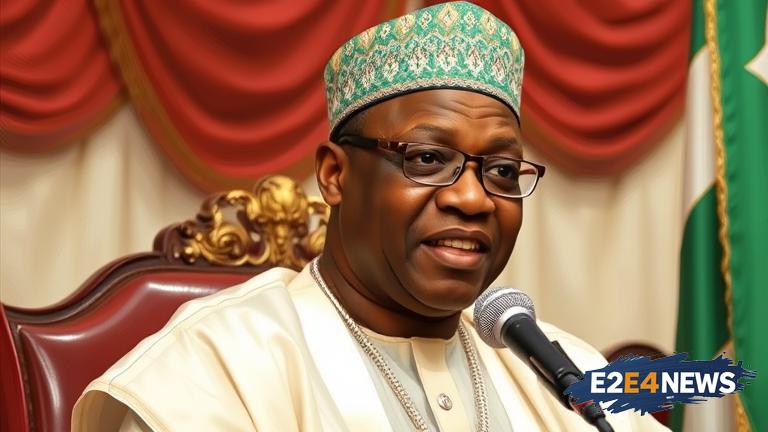Governor Peter Mbah of Enugu State in Nigeria is currently facing a dilemma that has sparked intense debate and criticism from various stakeholders. The governor’s administration has been accused of implementing policies that are not in the best interest of the people of Enugu State. One of the major concerns is the alleged lack of transparency and accountability in the governance of the state. Critics have also accused the governor of surrounding himself with incompetent and corrupt officials, which has led to a decline in the overall performance of the state. Furthermore, the governor’s handling of the state’s economy has been questioned, with many arguing that his policies have led to a rise in unemployment and poverty. The state’s infrastructure has also been neglected, with many roads and public facilities in a state of disrepair. Despite these challenges, Governor Mbah has maintained that his administration is committed to the development of Enugu State and has implemented various initiatives to improve the lives of the people. However, many have expressed skepticism about the governor’s claims, citing the lack of tangible evidence to support his assertions. The governor’s relationship with the state’s legislature has also been strained, with many lawmakers accusing him of disregarding their input and ignoring their concerns. The opposition parties in the state have also been vocal in their criticism of the governor, accusing him of being dictatorial and autocratic. In response to these criticisms, Governor Mbah has accused his opponents of being motivated by selfish interests and a desire to undermine his administration. The governor has also claimed that his administration has made significant progress in various areas, including education, healthcare, and infrastructure development. However, many have disputed these claims, arguing that the governor’s policies have not had a significant impact on the lives of the people. The dilemma facing Governor Mbah is further complicated by the fact that he is a member of the ruling party in the state, which has a significant influence on the political landscape of Enugu State. The governor’s ability to navigate these challenges and deliver on his campaign promises will be crucial in determining his legacy and the future of Enugu State. As the governor continues to face criticism and opposition, it remains to be seen whether he will be able to overcome the challenges and succeed in his role. The people of Enugu State are eagerly waiting to see how the governor will address the various issues facing the state and whether he will be able to deliver on his promises. The governor’s success or failure will have significant implications for the future of Enugu State and the ruling party. In conclusion, Governor Mbah’s leadership dilemma is a complex issue that requires careful consideration and analysis. The governor’s ability to address the various challenges facing the state and deliver on his campaign promises will be crucial in determining his legacy and the future of Enugu State. The people of Enugu State are watching with keen interest as the governor navigates these challenges, and it remains to be seen whether he will emerge successful or not. The governor’s administration has also been accused of human rights abuses, with many alleging that the state’s security forces have been used to intimidate and harass opponents of the governor. The governor has denied these allegations, but they have contributed to the growing perception that his administration is authoritarian and repressive. The international community has also been watching the situation in Enugu State with interest, with many expressing concern about the human rights situation in the state. The governor’s response to these criticisms has been to accuse his opponents of being unpatriotic and of seeking to destabilize the state. However, many have argued that the governor’s actions are a threat to democracy and the rule of law in Enugu State. The governor’s leadership dilemma is a reminder that leadership is not just about holding power, but also about serving the people and upholding the principles of democracy and good governance.
